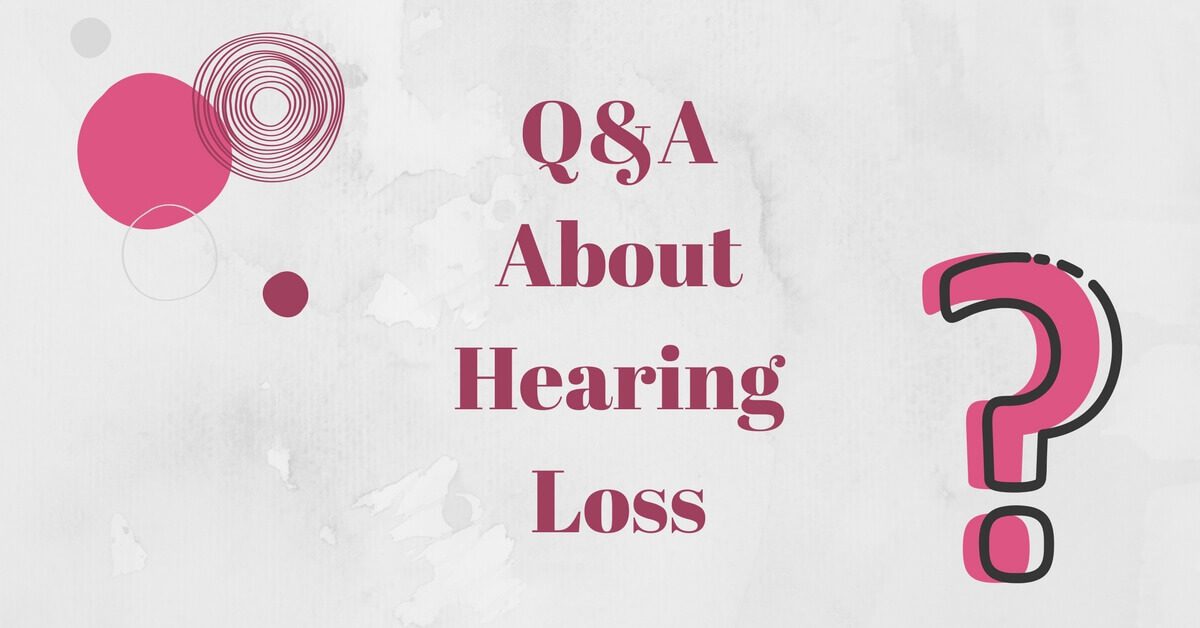All About Bluetooth Hearing Aids
Do you remember the hearing aids your parents or grandparents used to

By: admin | March 22, 2018
Whether it is age-related, noise-induced, genetic, hereditary, or caused by other factors, hearing loss is a very prevalent condition. 48 million Americans have a significant hearing loss and approximately 15 percent of American adults report some trouble hearing. If you have developed a hearing loss, you’re not alone. Treating your loss with hearing aids can help, as well as reaching out to others in the hard of hearing community. Here are some answers to a few common questions about this condition.
According to medical professionals this is not likely, particularly if your hearing loss is sensorineural. Even though this type of hearing loss is progressive and tends to become worse over time, in most patients the hearing loss reaches a point where it will stay the same. A hearing healthcare specialist can evaluate your hearing loss and let you know what type it is, as well as how serious it is. But living with untreated hearing loss, especially in older adults, has been linked to faster rates of cognitive decline–scientists believe this may be caused by an atrophy of the auditory processing centers of the brain as they are used less frequently. So, if your hearing healthcare specialist recommends hearing aids for your level of hearing loss, you should not delay treatment.
Not necessarily. If you have a profound hearing loss and receive little to no benefit from hearing aids, you may benefit from a cochlear implant, an electronic medical device that does the work of damaged parts of the inner ear (cochlea) to provide sound signals to the brain. In most hearing loss cases though, hearing aids can help to improve communication. Have an honest conversation with your hearing healthcare specialist and let them know which activities and environments are the most difficult for you. Think about the quality of communication you wish to have in the future and find out what your options are. That said, if you’ve ever thought about learning sign language now might be the time! It’s a wonderfully interactive language that makes use of body language and facial expressions, as well as hand and finger gestures. Learning another way to communicate is always beneficial.
If the hearing healthcare professional who has evaluated your hearing loss recommends that you wear two hearing aids, then you should take their advice. The reason is that your brain uses both ears to locate the origin of sounds–this is called localization. In many cases of hearing loss, it involves both ears (bilateral), and using two hearing aids will help your brain to receive and process sound signals, so that you won’t have to make such an effort to hear. And when listening and communication becomes easier, you’ll have more energy for doing the things you love. Another interesting fact: your right and left ears do not hear in the same way. Researchers at the University of Arizona and UCLA found that the left ear is more sensitive to singing and music, while the right ear is better at picking up the spoken word. Providing amplification to both ears means that you will able to enjoy all the complexities of the sounds around you.
In most cases, no. Hearing aids don’t require surgery and are the first and best course of treatment for most people with hearing loss. Cochlear implants are usually reserved for patients with profound deafness in one or both ears, where hearing aids have been proven ineffective. Implants are often performed in children who are born with no hearing; it is an invasive surgical procedure and should not be the first option for people who have developed hearing loss. Hearing aids, on the other hand, don’t require surgery and have been proven effective for people with mild to severe hearing loss. If you have noticed problems with your hearing, the first step is making an appointment with your doctor and hearing healthcare provider, who can assess your hearing loss and get you on the road to better hearing.
Do you have more questions than can be answered here about hearing? Our team at Orange County Physicians’ Hearing Services provides answers. Contact us to schedule a hearing test and consultation today.

Do you remember the hearing aids your parents or grandparents used to
By: admin | August 7, 2022

Do you ever find yourself at the end of a long day only to be confronted
By: admin | August 7, 2022

How Common is Hearing Loss Many people might be shocked to learn how
By: admin | June 22, 2022
